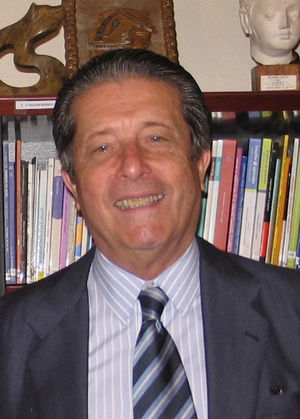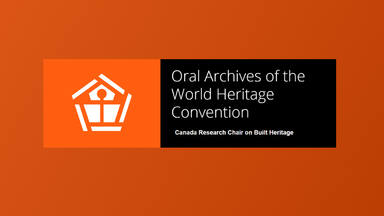
Interview
Federico Mayor
World Heritage Convention
Federico Mayor is a Spanish scientist, politician and diplomat with a Ph.D. in pharmacy. A biochemist and researcher, he taught at the University of Granada and then at the Faculty of Sciences in Madrid, where he founded the Severo Ochoa Molecular Biology Center in 1974.
In the same year he began his political career as Undersecretary to the Spanish Ministry of Education and Science. In 1977 he was elected a member of the Spanish Parliament and chaired the Parliamentary Committee for Education and Science before acting as an advisor to the President of the Government in 1978. He then served as Minister of Education and Science between 1981 and 1982. In 1987, he represented Spain in the European Parliament.
He was involved in UNESCO in 1978 as Deputy Director-General to Mr M'Bow before succeeding him in 1987. He was Director-General of UNESCO for twelve years, until 1999. During this period he launched the Culture of Peace program. At the end of his term, he returned to Madrid to create the Foundation Cultura de Paz, of which he is president. In 2011, he also became President of the International Commission on the Abolition of the Death Penalty. Scientist and poet, Federico Mayor has published hundreds of articles as well as several collections of poetry. He is the author of Tomorrow is Always Too Late (Stamford Publishing, 1992) and The World Ahead: Our Future in the Making (Zed Books, 2001).
Interview with
Federico Mayor
18 June 2009, Madrid, Spain
The following audio excerpts are from an interview with Federico Mayor by Christina Cameron and Carmen Anon Feliu the 18 June 2009 in Madrid in Spain. He highlights the human dimension of World Heritage, which he believes should be protected in the same way as monuments. He also comments on the World Heritage List and the work of the Advisory Bodies, recalling the importance of valuing the exceptional character of inscribed properties. Finally, he shares his experience as the former Director-General of UNESCO on the functioning of the Committee, the establishment of the World Heritage Centre and international solidarity.
- 1. The World Heritage Convention
- 1a. Involvement of Federico Mayor in the Convention and the human dimension of World Heritage
- 1b. Balance and length of the World Heritage List
- 1c. Successes of the Convention
- 2. World Heritage Committee
- 2a. Balance between diplomats and professionals
- 2b. Decisions of the Committee and the will of the States Parties
- 3. The advisory bodies: IUCN, ICOMOS and ICCROM
- 4. The secretariat of UNESCO
- 5. International solidarity
Oral Archives of the
World Heritage Convention
Under the leadership of the Canada Research Chair on Built Heritage at the University of Montreal, an international team of researchers conducts interviews with pioneers of World Heritage to capture memories of important moments in the history of UNESCO Convention.
Launched in 2006, this initiative is part of the UNESCO History project that celebrated the 60th anniversary of the creation of UNESCO. The Oral Archives project records the precious witness of people closely associated with the creation and implementation of the Convention. Their recollections and views have greatly enriched the book by Christina Cameron and Mechtild Rössler, Many Voices, One Vision: The Early Years of the World Heritage Convention (Ashgate/Routledge, 2013).
